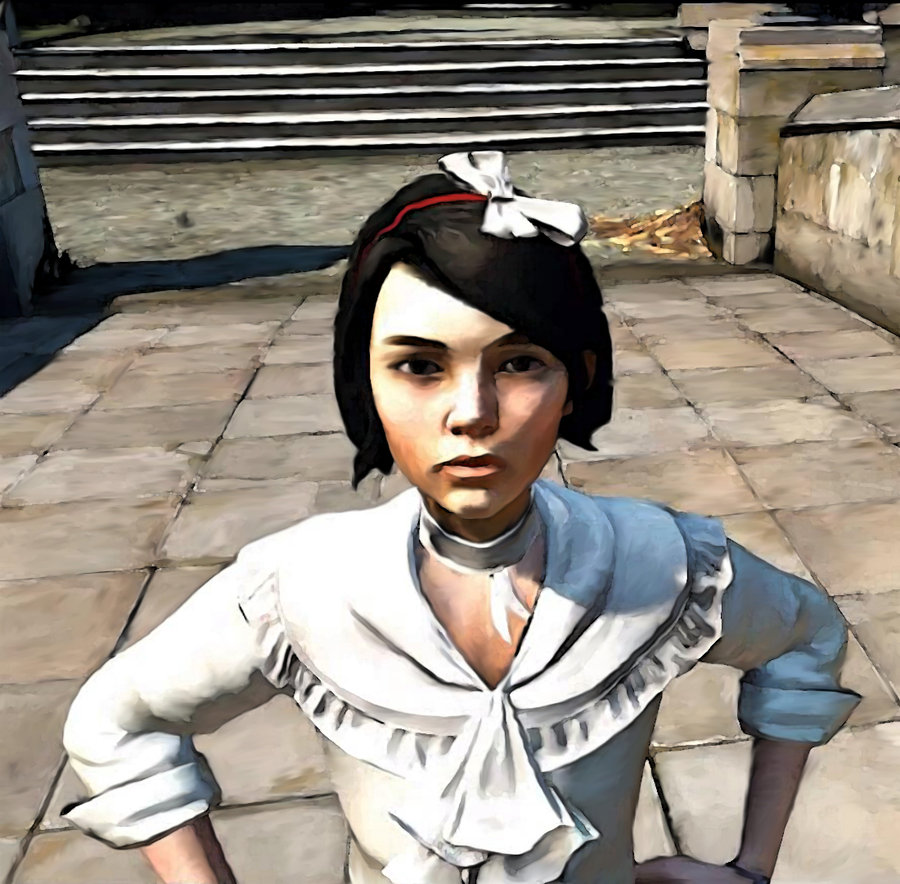 Forgive me… it has been a few months since my last commentary on a game. Its not for lack of playing. Reflecting on my kids and Minecraft is still ongoing but now I have finished Dishonored. Two and a half times.
Forgive me… it has been a few months since my last commentary on a game. Its not for lack of playing. Reflecting on my kids and Minecraft is still ongoing but now I have finished Dishonored. Two and a half times.
The first time I played it straight, the second time I went for low chaos all the way and third time I am playing for high chaos all the way. Its not about experiencing the different endings (I much preferred Bastion’s more philosophical choice point for this) but I do think its about being able to imagine if not hope for a kind of system ethics where your actions can set things in motion in a meaningful sort of way that may have nothing to do with you at the end.
I’ll try to keep this short because there is marking still to do today.
Before I started I knew this game was a stealth shooter and like most games of this sort (I play them on PC) I am not that good nor very patient so I tend to get into trouble a lot. Luckily on normal difficulty its way easy to fight yourself out of trouble but then because of this the chaos level creeps up without that being the intention. This is very different from how I am playing now (although I doubt I will finish a third time through) which is very Tarantino-esque as I slaughter every single enemy and civilian and then walk calmly over their dead bodies to pick up all the loot. And this is the very opposite of my second play-through which was nerve wracking, long and required multiple saves so that I could get the stealth and nonlethal take-down set pieces right.
I rather hoped that the reward would be greater than a cut-scene with a slightly more optimistic outlook for Dunwall given my patient labor and commendable moral character. Yes there were less rats and less weepers and it was sunnier and less grimy feeling in general but I actually didn’t feel like Corvo should be quite as nice as he is in low chaos. All the core NPCs anyway are pretty nasty folks and it might have helped if I caught snippets of conversation amongst the guards talking about their family lives and stuff. In the end though the interesting mechanic is too much about me.
It became far more interesting to think about how the system might be parsing (i.e. considering and then acting on) my actions. If low chaos means more light, less garbage, less weepers and less rats could there be other ways of expressing the impact of that which I notice but which does not necessarily directly effect my gameplay? Would there be the conditions for a more organized resistance movement in the city? There was one cool moment towards the end when I am returning through the sewers after Daud and come across a group of civilian NPCs. In high chaos they are weepers and in low chaos they are normal — not very friendly but at least having idle conversations which sound normal – like things are looking up… I can credit that to my actions because I played the same scene with weepers on my first play through. It was a nice moment.
Maybe there are other actions that could set up a chain reaction of events that might be perceived through the missions? If I act in a goodly manner might the system start acting in a goodly manner as well?
Maybe it would work better in the opposite direction — If I choose the Tarantino route shouldn’t I get a system that hates the world and everyone and everything in it. Maybe I’ll see some of this in the end-game of my third play-through — is there an ultra high chaos effect? I certainly did not see or feel much of an ultralow chaos effect so I doubt it.
Or maybe the effect is in my imagination and that’s already pretty interesting. I’d like to believe that my low chaos play is making a better world (a better system) even if I can’t see it directly and similarly my Tarantino game should feel downright tragic and I should surely die a most horrible death by the end or at least be utterly surprised and dismayed that I didn’t. Speaking of tragic games does anyone know of any game where you are able to choose to take your own life at the end? (okay thats another topic but still…).
Somewhere in there in the gameplay I am looking for. Its not a procedural or rational system ethics guided by good/bad decision trees or even fuzzy AI but rather a degree of interaction that allows me to care and imagine what kind of world processes might be going on while I am sitting on a ledge deciding whether to cut this or that guys throat or not.
